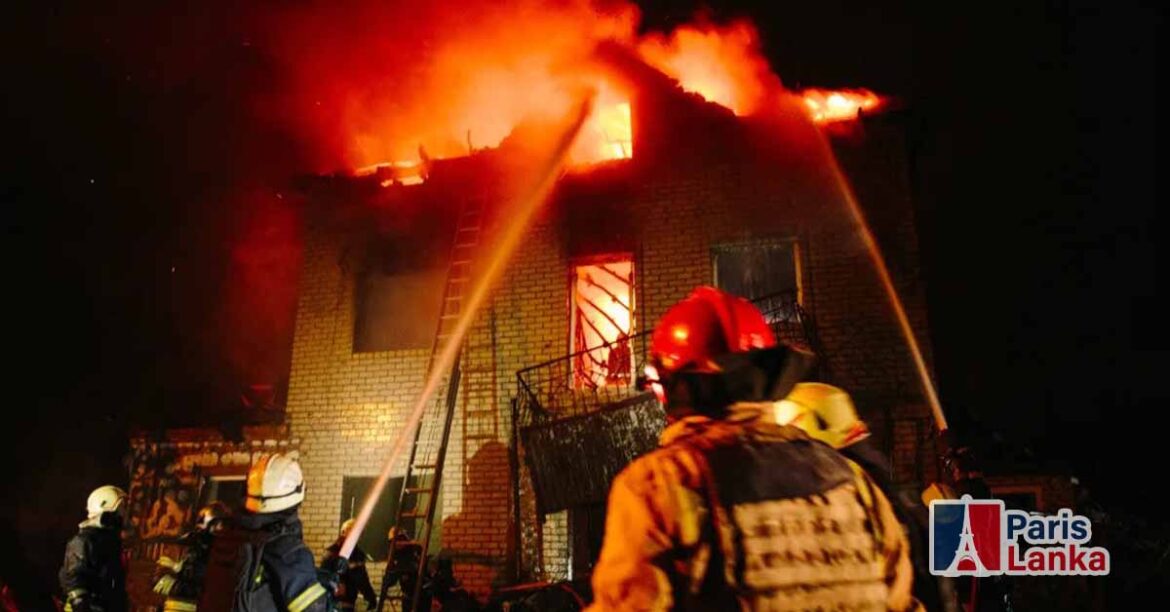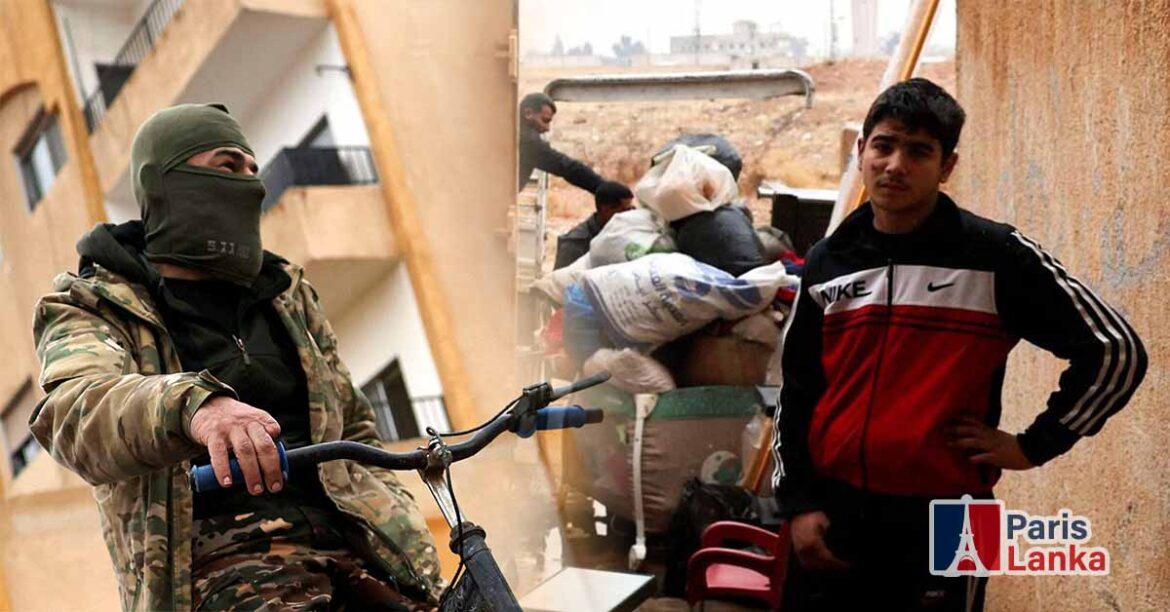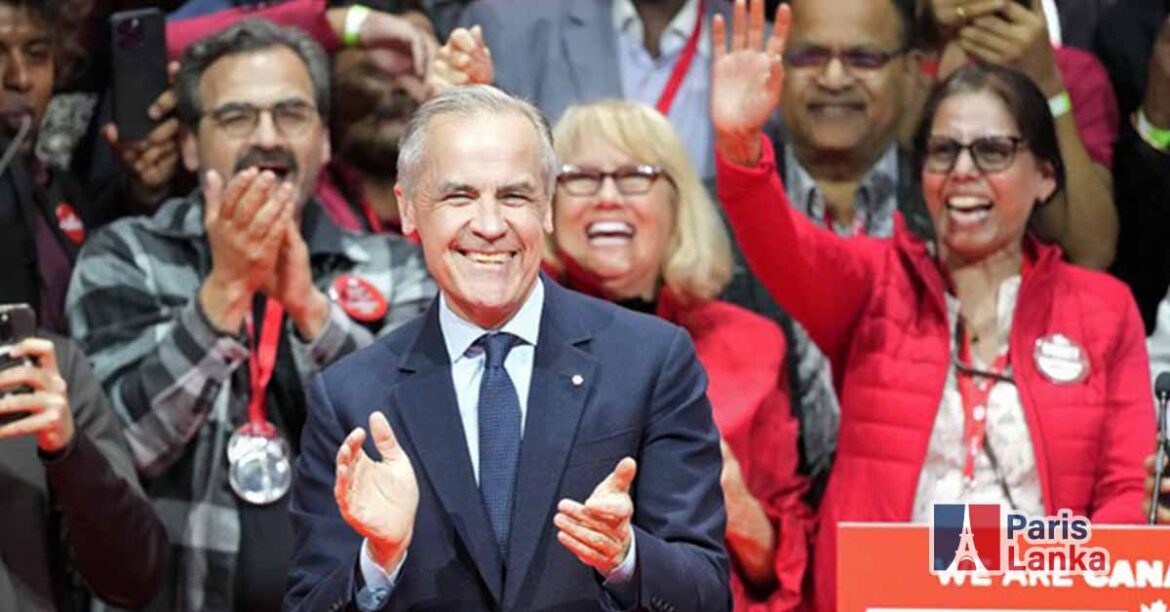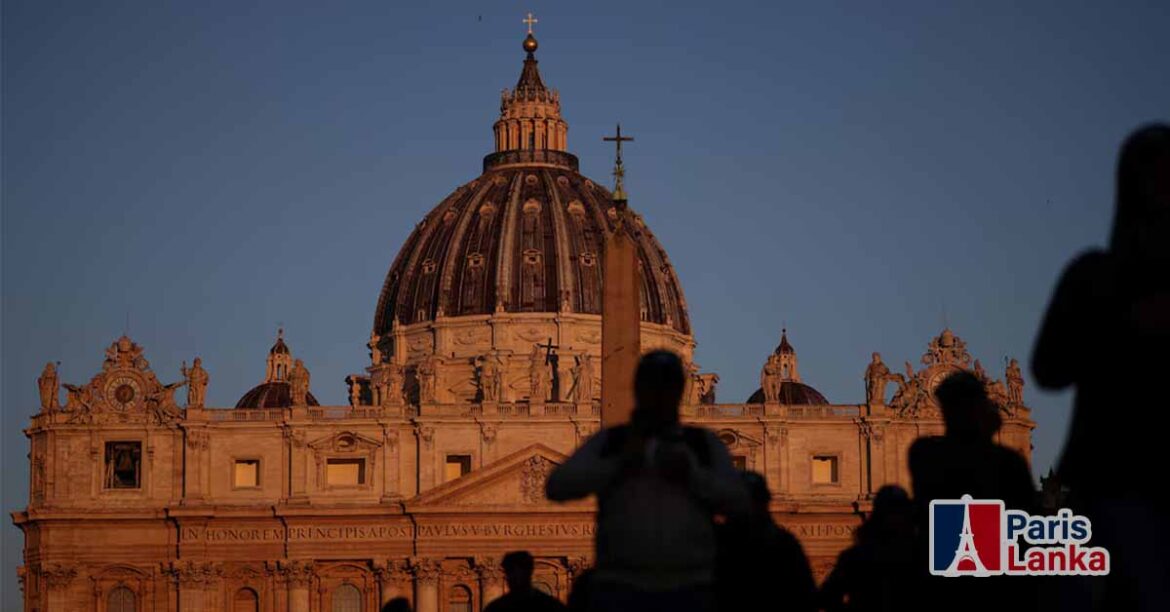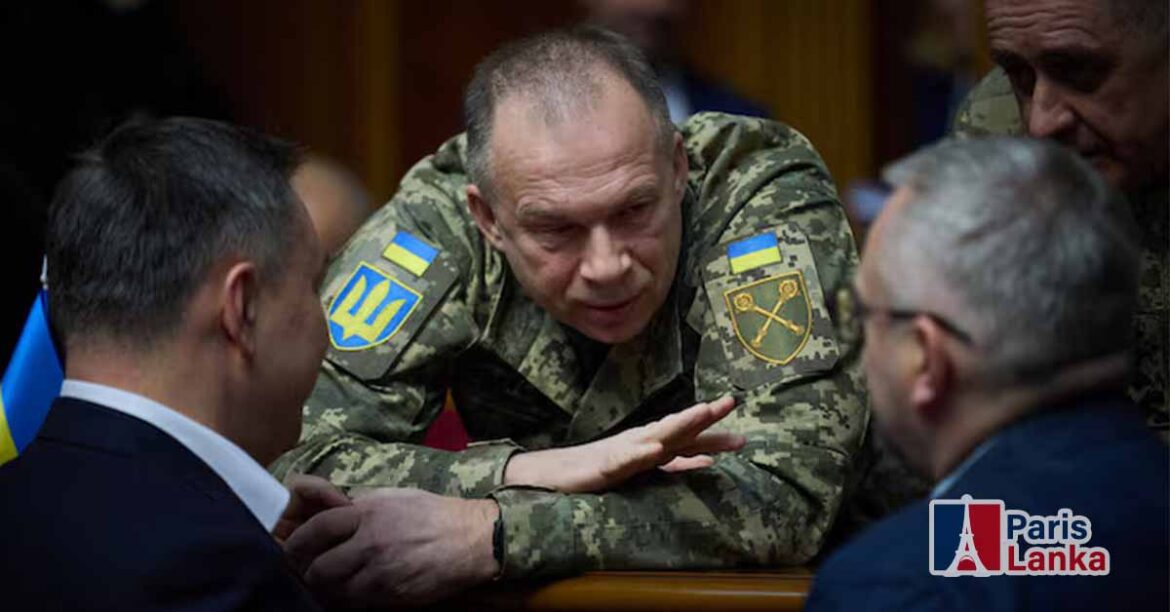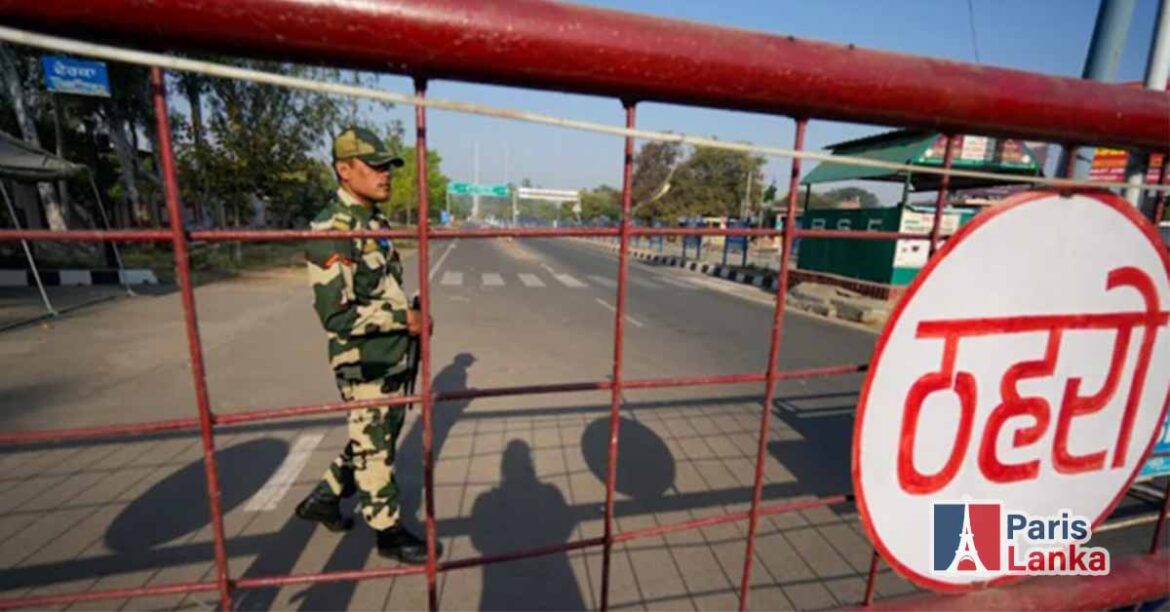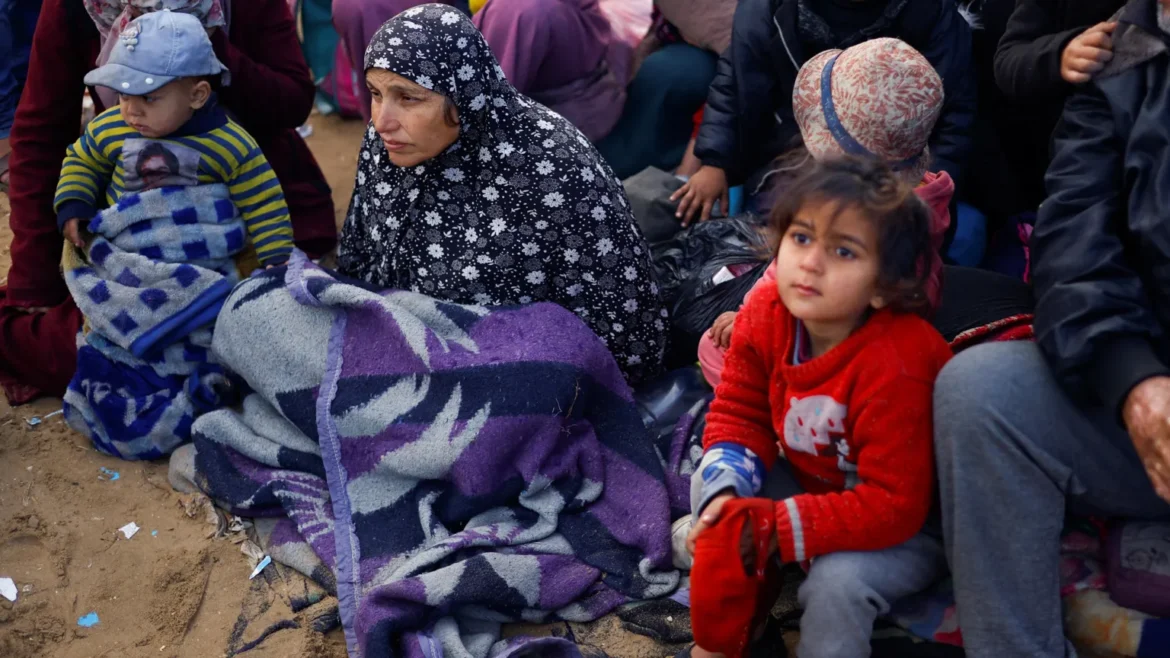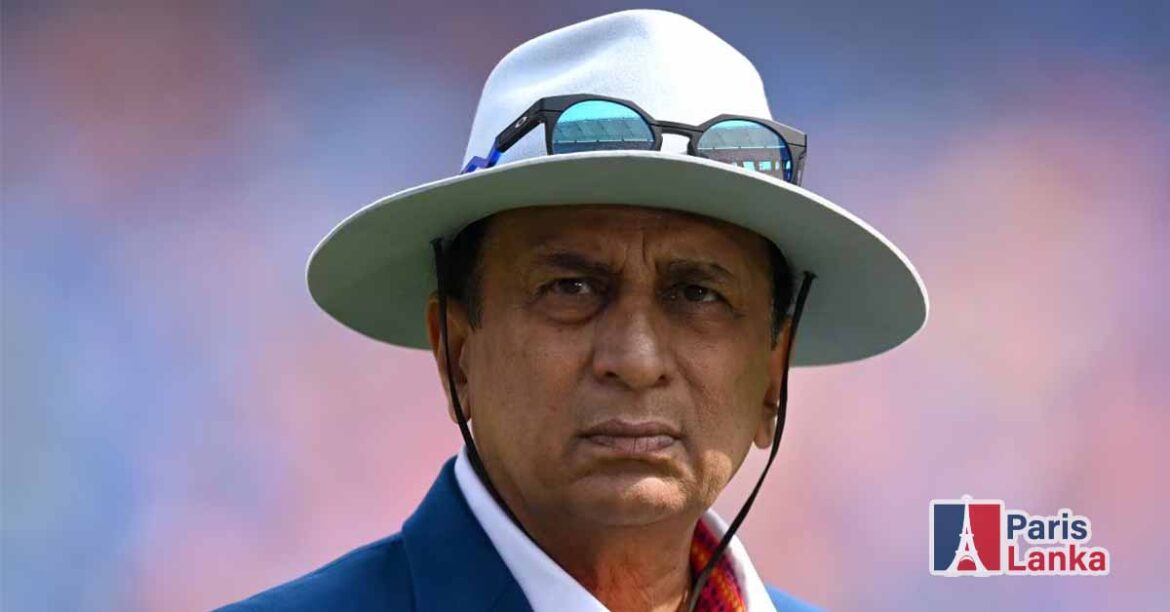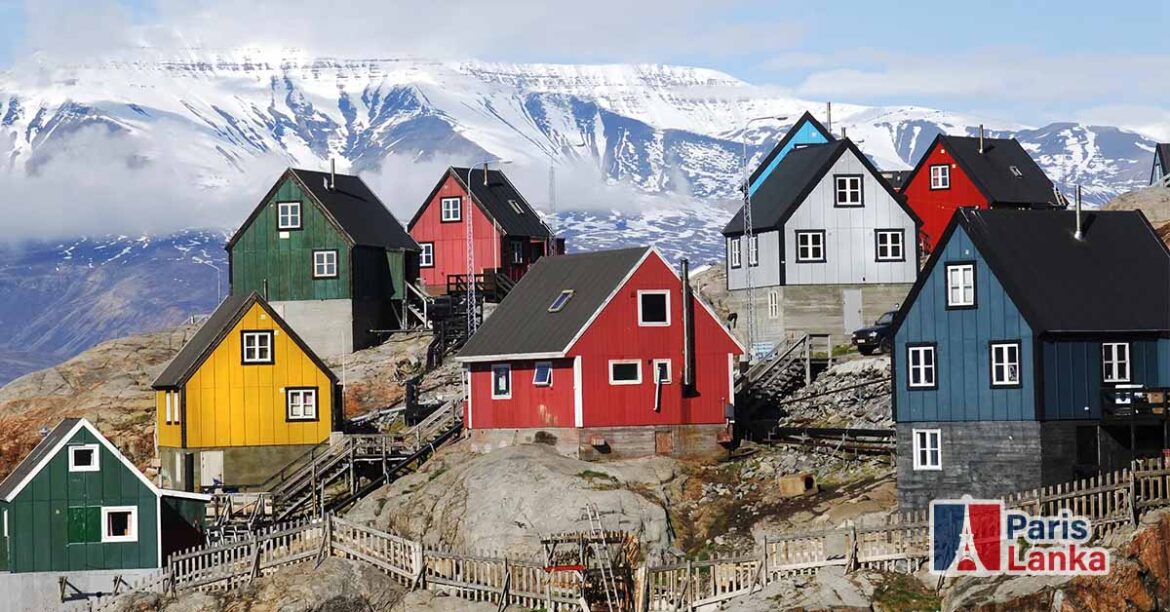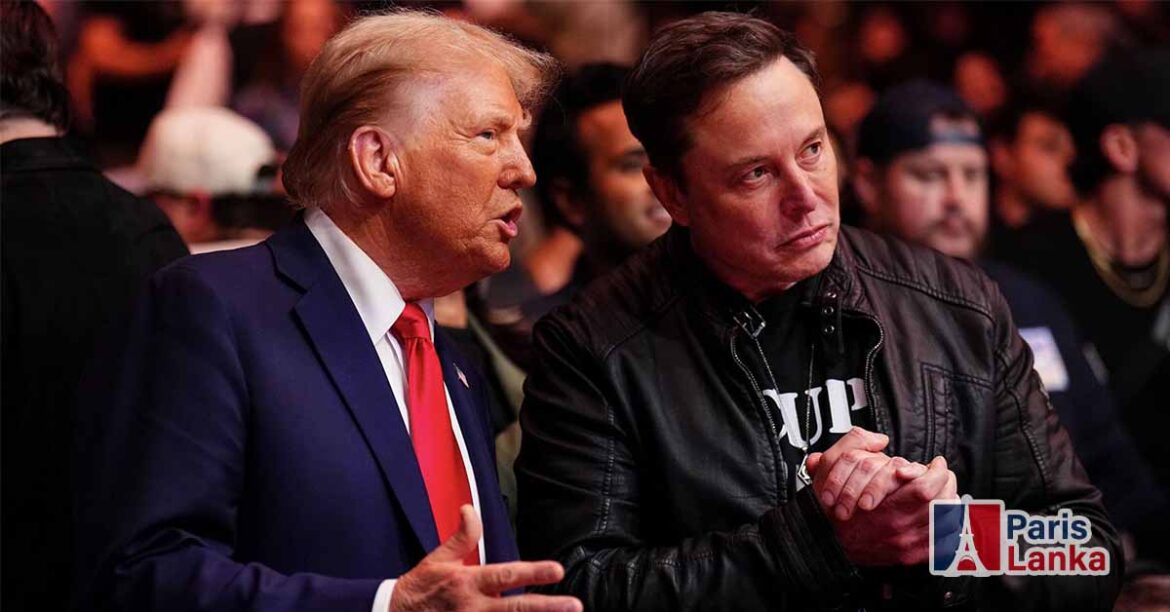Russia launched a mass drone attack late on Friday in Kharkiv, Ukraine’s second-largest city, hitting a high-rise apartment block, triggering fires and injuring 46 people, officials said.
Mayor Ihor Terekhov, writing on the Telegram messaging app, said there had been strikes in 12 locations in four central districts of the city, a repeated target of Russian air attacks lying 30 km (19 miles) from the country’s northeastern border.
President Volodymyr Zelenskiy denounced the drone strikes, which hit Ukrainian cities several times a week. He said dozens of drones had been launched and Ukraine’s allies were moving too slowly in helping beef up its air defence capability.
“There were no military targets, nor could there be any. Russia strikes dwellings when Ukrainians are in their homes, when they are putting their children to bed,” Zelenskiy wrote on Telegram.
“As the world delays decisions, almost every night in Ukraine turns into a horror that results in the loss of lives. Ukraine needs stronger air defences. Stronger and real decisions from our partners: the United States, Europe, all our partners who seek peace.”
World
Early one evening in late January, 12 masked men stormed the Damascus home of Um Hassan’s family, pointed AK-47 assault rifles in their faces and ordered them to leave.
When they presented ownership documents, the men arrested Um Hassan’s oldest brother and said they could only have him back once they had moved out. The family surrendered the house 24 hours later and picked him up, battered and bruised, from the local General Security Service headquarters, said Um Hassan, giving only her nickname for fear of reprisals.
Her family is part of Syria’s minority Alawite community, an offshoot of the Shi’ite faith and the sect of former strongman Bashar al-Assad. Their story is not unique.
Since Syria’s President Ahmed al-Sharaa seized power in December, hundreds of Alawites have been forced from their private homes in Damascus by the security forces, according to Syrian officials, Alawite leaders, human rights groups and 12 people with similar accounts who spoke to Reuters.
“We’re definitely not talking about independent incidents. We are talking about hundreds, if not thousands, of cases of evictions,” said Bassam Alahmad, executive director of human rights group Syrians for Truth and Justice (STJ).
The mass evictions of Alawites from privately owned homes have not been previously reported.
For more than 50 years, Assad and his father before him crushed any opposition from Syria’s Sunni Muslims, who make up more than 70% of the population. Alawites took many of the top positions in government and the military and ran big businesses.
They now accuse supporters of Sharaa, who once ran an al Qaeda affiliate, of systematically abusing them as payback.
In March, hundreds of Alawites were killed in Syria’s western coastal region and sectarian violence spread to Damascus in apparent retribution for a deadly ambush on Syria’s new security forces by armed Assad loyalists.
Two government officials said thousands of people had been kicked out of homes in Damascus since Assad was toppled by Sharaa’s rebel force, with the majority being Alawites.
The officials said most resided in government housing associated with their jobs in state institutions and, since they were no longer employed, they had lost their right to stay.
But hundreds more, like Um Hassan, were evicted from their privately owned homes simply because they are Alawites, Reuters interviews with multiple officials and victims show.
The interior ministry, which oversees the GSS, and Sharaa’s office did not respond to requests for comment.
Canada will ‘never’ yield to Trump’s threats as Prime Minister Carney declares election victory
Canadian Prime Minister Mark Carney said his country would “never” yield to the United States as he declared victory in federal elections early Tuesday, following a campaign overshadowed by relentless provocations and steep trade tariffs imposed by US President Donald Trump.
The Liberal Party leader issued a stunning rebuke to Trump as he sent a message of unity to a divided nation, promising to “represent everyone who calls Canada home.”
“As I have been warning for months, America wants our land, our resources, our water, our country. But these are not idle threats. President Trump is trying to break us so that America can own us,” Carney said, as he hailed a remarkable reversal in fortune for his party. “That will never ever happen.”
Carney reiterated statements he made on the campaign trail about the vastly changed nature of Canada’s relationship with the United States.
“We are over the shock of the American betrayal but we should never forget the lessons. We have to look out for ourselves. And above all we have to take care of each other,” he said.
Voters have returned Canada’s Liberal Party to power for a fourth consecutive term, but Carney will lead a minority government, according to projections from CNN’s broadcast partner CBC.
The Liberals won 169 seats, three short of the 172 needed to govern without support from a smaller party. In many Canadian constituencies, known as ridings, the results were close and could be subject to judicial recounts in the coming weeks.
Conservative opposition leader Pierre Poilievre conceded defeat early Tuesday. Capping a bad night for his party, Poilievre – whose party enjoyed a lead of more than 20 points over the Liberals before Trump returned to the White House – also lost his seat of Carleton to the Liberal challenger, Bruce Fanjoy. Poilievre had held that Ottawa-area seat for more than 20 years.
Leaders from Mexico, the European Union, Australia, the United Kingdom, and elsewhere were quick to congratulate Carney on his victory. Carney’s office said in a statement Tuesday evening that Trump had also called the prime minister to congratulate him.
“The leaders agreed on the importance of Canada and the United States working together – as independent, sovereign nations – for their mutual betterment,” the statement read. “To that end, the leaders agreed to meet in person in the near future.”
With betting on the next pope frowned upon in the home of the Vatican, thousands of Italians have instead taken to playing “Fantapapa”, an online game inspired by the fantasy leagues familiar to sports fans.
International gambling companies, never shy of a marketing opportunity, are offering odds on various candidates to succeed Pope Francis when cardinals meet in a secret conclave from May 7.
In Italy, however, no licensed gambling platform is taking bets on ‘papabili’, as the papal contenders are known. Fantapapa offers an alternative for those who want some gaming before the white smoke rises.
Players create a team of 11 papal candidates and win points if a team member is mentioned prominently in media within Italy and beyond. Extra points are allocated if one of your picks is elected, with bonuses for correct guesses on other elements such as the name taken by the new pontiff.
“As of now (Cardinal Matteo) Zuppi is the preferred candidate and, notably, most of the followers on our Instagram profile are women,” Pietro Pace, one of the creators,
Zuppi, the archbishop of Bologna and the head of the Italian bishops’ conference, is a well-known figure in the country.
Pace, an AI architect at Microsoft, and Mauro Vanetti, a video game developer, started working on the platform in February when Francis went into hospital. The game, which is free to play and carries no adverts, went online shortly after he died on April 21, and the number of users approached 60,000 this week.
“There are no prizes, it’s just for fun and for the eternal glory,” Pace said.
NOVELTY BETS
Betting on the conclave is not illegal in Italy, but it is discouraged.
“In Italy there is no law expressly prohibiting betting on the election of the pope,” explained Nicola Tani, head of specialist media outlet Agipronews.
“However, the Customs Agency, which authorises the subject of bets in advance, has informally asked gaming licensees to avoid offering odds on the election of the pope, as is the case for Italian political elections,” Tani added.
For gambling companies elsewhere, bets on the pope fall into the novelty category of one-off events that cannot be judged by conventional statistics or sporting form. Sums wagered are relatively small.
On Polymarket, a blockchain-based prediction market, the “Who will be the next Pope?” market has seen a modest $10 million in total volume. By comparison, a possible Fed decision on interest rates in May has seen almost $30 million in bets.
Favourites are starting to emerge.
“There’s already plenty of speculation on the next Pope, and currently we make the Vatican Secretary of State, Pietro Parolin, our favourite at 9/4,” said Lee Phelps, spokesperson for British-based gambling group William Hill.
He added that “Luis Antonio Tagle is second in our market at 3/1 and would become the first Asian Pope in history, while Matteo Zuppi and Peter Turkson are both priced at 6/1.”
Tagle is from the Philippines. Turkson is from Ghana and would be the first Black pope in modern history.
Russians fighting more intensely despite ceasefire talk, Ukrainian commander says
Russian forces have significantly increased the intensity of their combat activity in eastern Ukraine, Ukraine’s top military commander Oleksandr Syrskyi said on Wednesday.
Russian President Vladimir Putin has declared a three-day ceasefire from May 8-10 to mark the 80th anniversary of the victory of the Soviet Union and its allies in World War Two. Ukrainian President Volodymyr Zelenskiy wants an immediate ceasefire lasting at least 30 days.
“Despite loud statements about readiness to cease fire for the May holidays, the occupiers (Russian forces) have significantly increased the intensity of combat actions, focusing their main efforts on the Pokrovsk direction,” Syrskyi said on Telegram.
Reuters could not independently verify the battlefield situation, including the intensity of Russian combat actions.
Russian forces, which began their full-scale invasion of Ukraine in February 2022, have for months been trying to encircle the eastern town of Pokrovsk, a logistics hub, but Ukrainian resistance has slowed their advances in the area. Moscow sees taking control of Pokrovsk as an important stepping stone to incorporating the whole of Ukraine’s Donetsk region into Russia. Moscow de facto controls most of the region.
Kyiv and its allies reject Russia’s territorial claims as illegal and accuse Moscow of prosecuting a war of colonial conquest.
Indus Waters cut, trade halted: How India’s diplomatic hammer has sparked triple crisis in Pakistan
India’s suspension of the Indus Waters Treaty and shutting the Attari-Wagah border following the heinous Pahalgam terror attack has rattled Pakistan’s already struggling economy. Islamabad, caught off-guard by the swift and sweeping measures, is now facing mounting pressure across critical sectors — agriculture, health, fertiliser supply, and access to vital water resources.
Through the now-suspended IWT, Pakistan gets roughly 80% of the waters of western rivers (Indus, Jhelum and Chenab) that flow through India into Pakistan, whereas India’s share from the eastern rivers (Beas, Ravi and Sutlej) is 20%. The suspension of the treaty will hit Pakistan way more than India.
“This is a clever, popular and populistic measure,” said Happymon Jacob, an associate professor of diplomacy and disarmament at Jawaharlal Nehru University, as quoted by New York Times.
Agriculture – Pakistan’s lifeline under threat
Agriculture is the backbone of Pakistan’s economy, contributing around 20% to its GDP and employing over 38% of its labour force. In fact, more than 80% of Pakistan’s agriculture and around a third of its hydropower generation depend on the waters of the Indus basin.
Following the suspension of the IWT, New Delhi has hinted at restricting or diverting waters from the eastern rivers (Ravi, Beas, Sutlej) for exclusive Indian use. While India cannot stop water flows immediately, but even a marginal reduction in river flow could cripple irrigation cycles in key agricultural belts like Punjab and Sindh, which depend heavily on the Indus system for crops such as wheat, rice, cotton and sugarcane.
According to US Department of Agriculture data (2015–2018 averages), the Punjab province alone accounts for 77% of Pakistan’s wheat production. Sindh contributes another 15%, while Khyber Pakhtunkhwa accounts for about 5%, and Balochistan just 3.5%. The heartland of Pakistan’s wheat belt is crisscrossed by rivers like the Chenab, Jhelum, Ravi, and Sutlej, all of which originate in India. This means any reduction or disruption in water flow would severely impact over three-fourths of Pakistan’s wheat output.
Districts along the Indus and its tributaries, including areas around Rawalpindi, Sialkot, Multan, and Bahawalpur, report the highest wheat production levels (ranging between 450 to 1,200 thousand metric tons). Central and Southern Punjab regions, shown in deep green on the map, would be particularly vulnerable if water shortages persist during critical sowing and harvesting windows.
Food prices in Pakistan are already soaring due to internal economic woes. Any shock to agriculture output, especially wheat — the staple food — will further fuel inflation, deepen poverty, and create rural unrest. A shortfall in wheat could also force Pakistan to import grains, straining its fragile foreign exchange reserves.
Medicine shortages: A brewing health crisis
With Islamabad suspending trade ties, a day after India downgraded diplomatic relations with Pakistan, its health authorities have initiated emergency measures to secure pharmaceutical supplies. Currently, Islamabad relies on India for 30-40 per cent of its pharmaceutical raw materials, including Active Pharmaceutical Ingredients (APIs) and advanced therapeutic products. Critical life-saving drugs for cancer, cardiovascular diseases, diabetes, and antibiotics were sourced from Indian manufacturers due to their affordability and quality.
India’s department of pharmaceuticals has requested the pharma exports body to prepare a list of medicines and pharmaceutical products exported to Pakistan.
Reports suggest that Drug Regulator Authority of Pakistan (DRAP) is exploring alternative sources in China, Russia and several European countries.
The country could witness shortage of vital medicines if immediate steps are not taken. The shortage of medicines will inevitably lead to a surge in prices, making essential healthcare unaffordable for a large segment of the Pakistani population. This scarcity will also fuel the growth of black markets, where unregistered and potentially substandard medicines, often smuggled from various sources, will be sold at exorbitant prices, further jeopardizing public health.
Fertiliser shortage: Food production at risk
India has historically been a major supplier of DAP (Di-ammonium phosphate) and urea, critical fertilisers for Pakistan’s major crops. The trade suspension by Pakistan means it must now seek more expensive imports from Gulf countries, China, or Central Asia.
However, this will likely involve higher transportation costs and potential delays in supply, further impacting the agricultural cycle and overall productivity. The reliance on distant suppliers also increases Pakistan’s vulnerability to global supply chain disruptions and price volatility.
US President Donald Trump has said he wants Egypt and Jordan to take in Palestinians from Gaza.
Trump said he had made the request to Jordan’s King Abdullah and planned to ask Egypt’s president on Sunday, too.
Describing Gaza as a “demolition site”, Trump said: “You’re talking about probably a million and a half people, and we just clean out that whole thing”. He added that the move “could be temporary” or “could be long-term”.
Hamas has vowed to oppose any such action, and the comments will likely outrage Palestinians in Gaza, for whom it is their home. Jordan’s foreign minister said the kingdom was “firm and unwavering” in its rejection of displacing Palestinians.
A ceasefire is being observed in Gaza after a deal between Israel and Hamas to halt the war which began when Hamas attacked Israel on 7 October 2023. About 1,200 people were killed and 251 taken back to Gaza as hostages.
More than 47,200 Palestinians, the majority civilians, have been killed in Israel’s offensive, Gaza’s Hamas-run health ministry says.
Most of Gaza’s two million residents have been displaced in the past 15 months of the war, which has flattened much of Gaza’s infrastructure.
The United Nations has previously estimated that 60% of structures across Gaza have been damaged or destroyed, and it could take decades to rebuild.
Trump made his comments while speaking to reporters on board the Air Force One.
“Almost everything is demolished and people are dying there.
“So I’d rather get involved with some of the Arab nations and build housing at a different location where maybe they can live in peace for a change.”
Trump did not give further details of the proposal, and the subject was not referenced in the White House’s official read-out of the call.
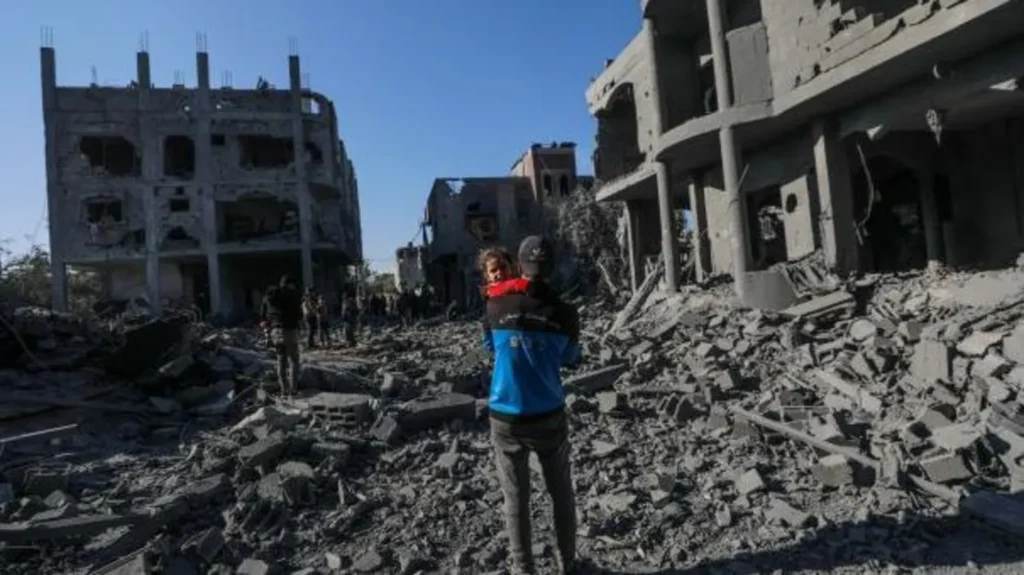
“Our Palestinian people in the Gaza Strip endured death and destruction for 15 months… without leaving their land. Therefore, they will not accept any offers or solutions, even if they appear to be good intentions under the title of reconstruction, as announced by US President Trump’s proposals,” Bassem Naim, a member of the Hamas political bureau, told the BBC.
“Our people, just as they have thwarted all plans for displacement and an alternative homeland over the decades, will also thwart such projects,” he added.
Asked about Trump’s comments, Abu Yahya Rashid, a man displaced in the southern city of Khan Younis said:
“We are the ones who decide our fate and what we want. This land is ours and the property of our ancestors throughout history. We will not leave it except as corpses.”
Decades of US foreign policy has committed to the creation of a Palestinian state, with Gaza as a key part. Israeli Prime Minister Benjamin Netanyahu rejects this.
Donald Trump has a long history of seemingly speaking off the cuff and floating ideas that never end up taking fruition.
However, the idea of encouraging Gazans to relocate to neighbouring countries has long been pushed by hardline right-wing members of Netanyahu’s government.
The former national security minister Itamar Ben-Gvir from the Jewish Power party said he commended Trump “for the initiative to transfer residents from Gaza to Jordan and Egypt”.
“One of our demands from Prime Minister Benjamin Netanyahu is to promote voluntary emigration,” he wrote on X.
The current Israeli finance minister, the far-right settler Bezelal Smotrich, has also said Palestinians should emigrate to neighbouring countries to allow Jewish settlements to be re-established in Gaza.
Such comments outrage Palestinians and will dismay proponents of a “two-state solution” – the establishment of an independent Palestinian State alongside Israel.
There are fears amongst Palestinians that those around President Trump are pushing him in a more extreme direction when it comes to policy in the Middle East.
This month, Trump’s nominee to be the next US ambassador to Israel, the evangelical Christian Mike Huckabee, rejected the idea of there ever being a Palestinian state outright.
“The Palestinians had their chance in Gaza,” he said in a US television interview.
“And look what happened there.”
Gaza has been under Israeli occupation since 1967.
Huckabee’s comments contradict six decades of US policy in the Middle East during which Washington has long pushed the concept of a “two-state solution”.
The US has previously said that it opposes any forcible displacement of Palestinians from Gaza or the occupied West Bank.
More than two million Palestinian refugees, most of whom have been granted citizenship, live in Jordan, according to the UN. They are descendants of some of the approximately 750,000 Palestinians who fled or were forced from their homes in the conflicts surrounding the formation of Israel in 1948.
Thousands of Palestinians have fled to Egypt since the war with Israel began, but they are not recognised there as refugees.
In October 2023, Egypt’s President Abdel Fattah al-Sisi said he rejected any forced displacement of Palestinians into the Sinai peninsula, and that the only solution was an independent state for Palestinians.
Some on Israel’s far-right want to return to Gaza and establish settlements there. Israel ordered a unilateral pull out in 2005, with 21 settlements dismantled and about 9,000 settlers evacuated by the army.
Trump’s comments came as displaced people were delayed from returning to their homes in northern Gaza after Israel accused Hamas of breaching the terms of a ceasefire deal.
“There is nothing there – there is no life, everything is demolished. But still to return to your land, to your home is a big joy,” one man anxiously waiting told the BBC.
In separate comments on Air Force One, Trump said he had ended former President Joe Biden’s hold on the supply of 2,000-pound bombs to Israel.
“They paid for them and they’ve been waiting for them for a long time,” he told reporters on Air Force One.
The US is by far the biggest supplier of arms to Israel, having helped it build one of the most technologically sophisticated militaries in the world.
But the war in Gaza led to renewed calls for the US to reduce or end arms shipments to Israel, because of the level of destruction caused by US weapons in the territory.
Cricket Australia (CA) has responded to legendary Indian batter Sunil Gavaskar’s disappointment over not being invited to present the Border-Gavaskar Trophy after the fifth Test between India and Australia. Gavaskar expressed his discontent at being excluded from the presentation ceremony, despite being at the venue. However, CA clarified that Gavaskar had been informed earlier that he would present the trophy to Indian captain Jasprit Bumrah if India retained it. Since Australia won the series, Allan Border was chosen to present the trophy to Australian captain Pat Cummins.
In a statement, a CA spokesperson acknowledged the oversight, stating, “We recognize that it would have been preferable for both Allan Border and Sunil Gavaskar to share the stage during the presentation.”
Border handed the trophy to the Australian team, but Gavaskar, despite his presence, was not included in the ceremony. Addressing the issue, Gavaskar expressed his disappointment, saying, “It shouldn’t matter who wins when it comes to the presentation. It’s the Border-Gavaskar Trophy, representing Australia and India. I would have been delighted to present it alongside my good friend Allan Border.”
The Border-Gavaskar Trophy, contested between India and Australia since 1996-1997, has become one of Test cricket’s most celebrated rivalries. This five-match series, won by Australia, set record attendance figures at several venues, including breaking an 87-year-old record at the Melbourne Cricket Ground.
Greenland is a large, icy island that is important to Denmark. The United States has shown interest in buying it, but Denmark says it is not for sale.
A New King Makes Changes
Frederik X became Denmark’s king in 2024. He made an important change to Denmark’s royal coat of arms. For many years, the coat of arms had three crowns, showing Denmark’s old connection with Norway and Sweden. But the king removed the crowns and added a polar bear for Greenland and a ram for the Faroe Islands. This change shows how much Denmark values these two places.
The king said, “We are one kingdom, from South Schleswig to Greenland. We belong together.”
Greenland’s Push for Independence
Greenland has its own government but is still part of Denmark. It wants more control over its future. Greenland’s Prime Minister, Múte Egede, has spoken out about unfair treatment in the past. He called for independence, saying Greenland should be free from “colonial times.”
Denmark still manages Greenland’s foreign and security policies, which some Greenlanders do not like.
The United States Shows Interest
In 2019, U.S. President Donald Trump said he wanted to buy Greenland. Most people thought the idea was strange. Now that Trump is president again, he has brought it up once more.
Denmark’s leaders, including King Frederik X and Prime Minister Mette Frederiksen, have made it clear: “Greenland is not for sale.”
Why Greenland Matters
Greenland is important for several reasons:
Resources: It has valuable minerals and other natural resources.
Location: It is in the Arctic, a key area for global trade and politics.
Denmark wants to keep Greenland as part of its kingdom, even as Greenland talks about independence.
A Clear Message
The new coat of arms sends a strong signal. By featuring the polar bear and ram, Denmark is saying that Greenland and the Faroe Islands are key parts of its kingdom.
The future of Greenland is still uncertain. Denmark, Greenland, and even the United States will play important roles in what happens next.
A heated online debate among supporters of Donald Trump has revealed growing tensions within his political coalition over immigration and the role of foreign workers in the U.S. tech industry.
The clash highlights the divide between traditional supporters of Trump’s hardline immigration policies and tech entrepreneurs advocating for an expanded workforce of highly skilled migrants.
The debate began when right-wing provocateur Laura Loomer criticized Trump’s reported selection of Sriram Krishnan, a Silicon Valley executive, as an adviser on artificial intelligence. Krishnan has been vocal in his support of allowing more skilled immigrants into the U.S., a stance Loomer denounced as contrary to the “America First” philosophy.
Loomer accused tech industry leaders of using Trump’s platform to push policies that serve their financial interests rather than national priorities. Her comments sparked a fierce exchange on the social media platform X, owned by billionaire Elon Musk, a key Trump ally.

